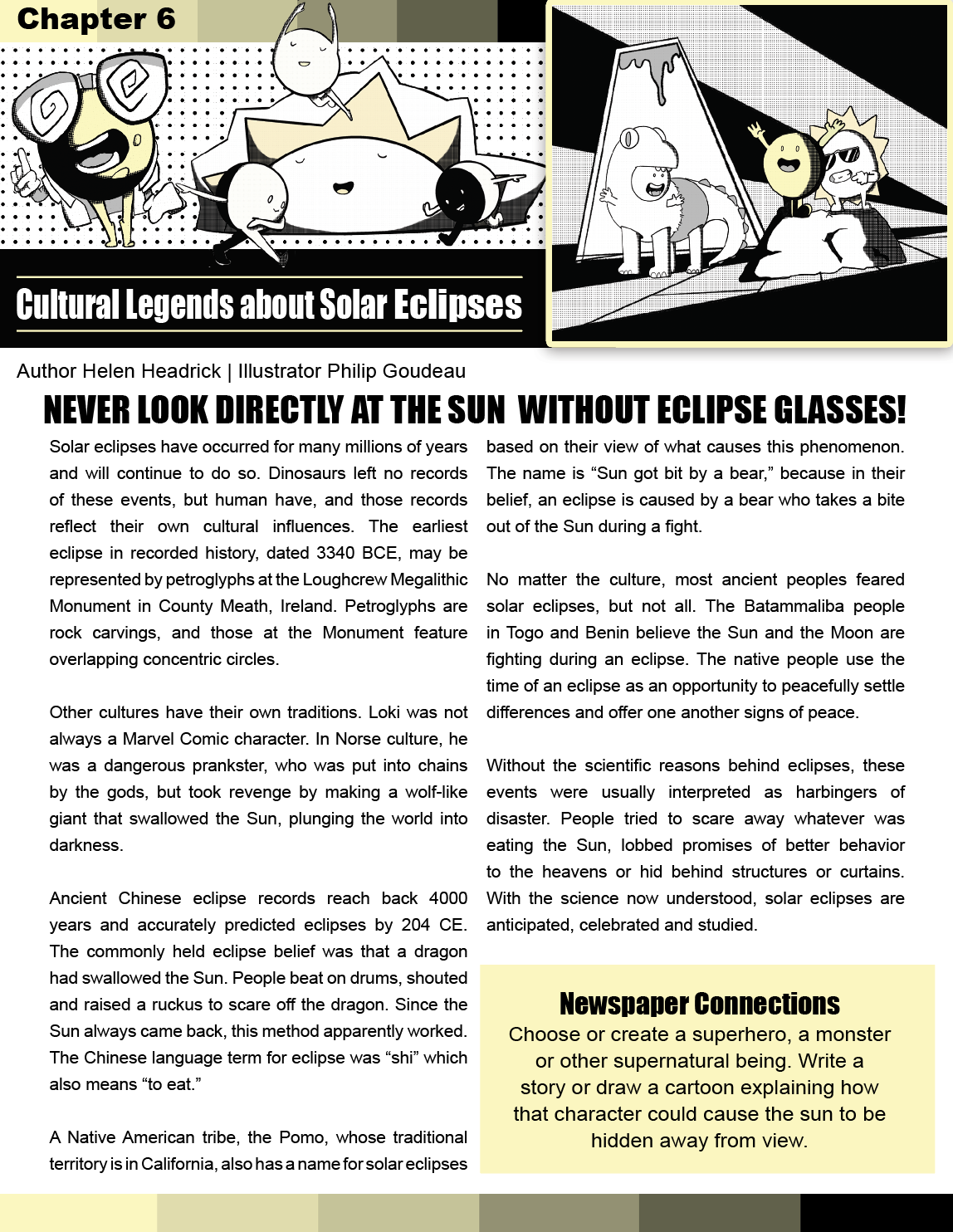
Author Helen Headrick | Illustrator Philip Goudeau
NEVER LOOK DIRECTLY AT THE SUN WITHOUT ECLIPSE GLASSES!
Solar eclipses have occurred for many millions of years and will continue to do so. Dinosaurs left no records of these events, but humans have, and those records reflect their own cultural influences. The earliest eclipse in recorded history, dated 3340 BCE, may be represented by petroglyphs at the Loughcrew Megalithic Monument in County Meath, Ireland. Petroglyphs are rock carvings, and those at the Monument feature overlapping concentric circles.
Other cultures have their own traditions. Loki was not always a Marvel Comic’s character. In Norse culture, he was a dangerous prankster, who was put into chains by the gods, but took revenge by making a wolf-like giant that swallowed the Sun, plunging the world into darkness.
Ancient Chinese eclipse records reach back 4000 years and accurately predicted eclipses by 204 CE. The commonly held eclipse belief was that a dragon had swallowed the Sun. People beat on drums, shouted and raised a ruckus to scare off the dragon. Since the Sun always came back, this method apparently worked. The Chinese language term for eclipse was “shi” which also means “to eat.”
A Native American tribe, the Pomo, whose traditional territory is in California, also has a name for solar eclipses
based on their view of what causes this phenomenon. The name is “Sun got bit by a bear,” because in their belief, an eclipse is caused by a bear who takes a bite out of the Sun during a fight.
No matter the culture, most ancient peoples feared solar eclipses, but not all. The Batammaliba people in Togo and Benin believe the Sun and the Moon are fighting during an eclipse. The native people use the time of an eclipse as an opportunity to peacefully settle differences and offer one another signs of peace.
Without the scientific reasons behind eclipses, these events were usually interpreted as harbingers of disaster. People tried to scare away whatever was eating the Sun, lobbed promises of better behavior to the heavens or hid behind structures or curtains. With the science now understood, solar eclipses are anticipated, celebrated and studied.
Newspaper Connections
Choose or create a superhero, a monster or other supernatural being. Write a story or draw a cartoon explaining how that character could cause the sun to be hidden away from view.


















